Video of the Week: Demystifying AAC
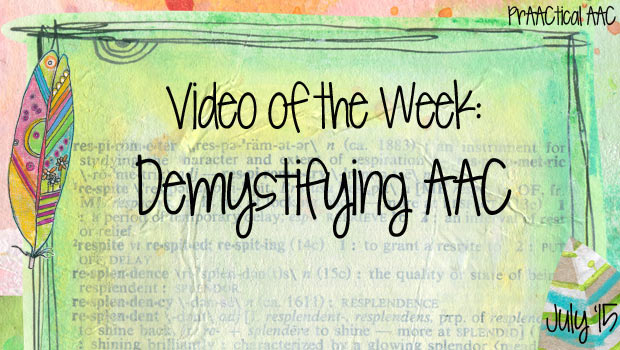
Need a video that helps colleagues or families understand some of the basic concepts in AAC? Take a look at this one from an archived Avaz webinar.

Need a video that helps colleagues or families understand some of the basic concepts in AAC? Take a look at this one from an archived Avaz webinar.
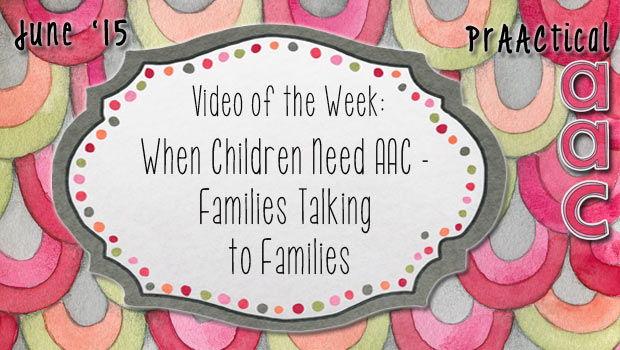
As much as we bring to the discussion when families are considering AAC, most of us are not able to speak authentically about what it is like to raise children who use AAC. In this video, Dana Nieder, author of the popular blog Uncommon Sense, talks about this issues from a parent’s perspective. This is a great video to share with families and team members who may be new to AAC. Thanks to the Center on Technology and Disability for making this available.
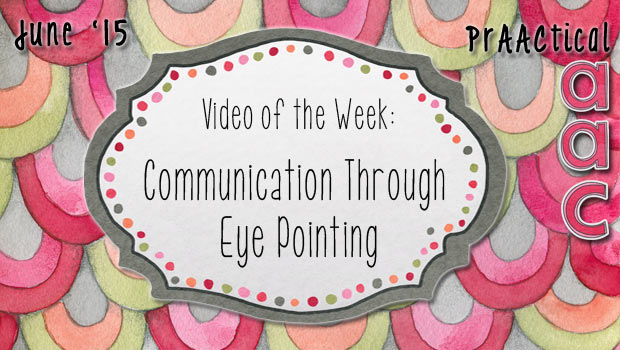
When people have significant motor impairments, finding a sustainable way for them to select and convey messages is a challenging task. This week, we turn to the ALS Association of Iowa for two wonderful videos on how to use ‘no tech’ eye gaze boards for communication. Direct Links to Videos Etran https://www.youtube.com/watch?v=LLkpRbUQzVo Eye Link https://www.youtube.com/watch?v=eHyXCcS38XM
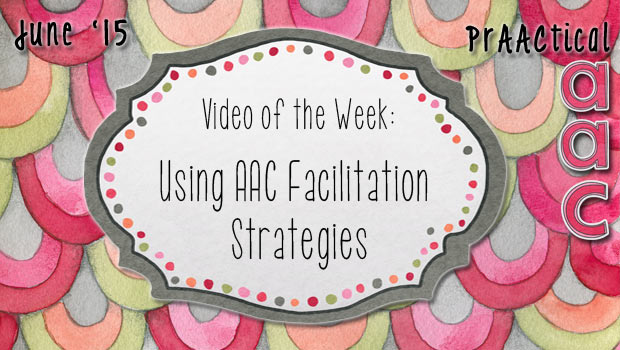
How can adults and peers who serve as communication partners support AAC learners in their interactions? Dr. Rae Sonnenmier of the Institute on Disability at the University of New Hampshire has lots of implementation ideas.
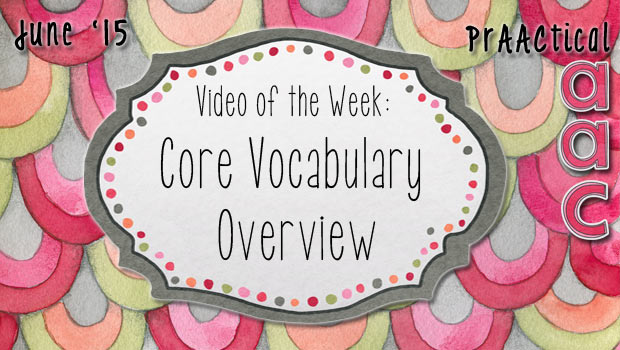
The Dynamic Learning Maps Professional Development Team, headed by Dr. Karen Erickson, put together a wonderful video to introduce professionals and families to the concept of core vocabulary. This is a great resource to use to introduce team members to key concepts in core vocabulary and the instructional strategies that support students in learning to use it. Take a look. Direct Link to video: https://www.youtube.com/watch?v=ryda0ViRekU&feature=youtu.be
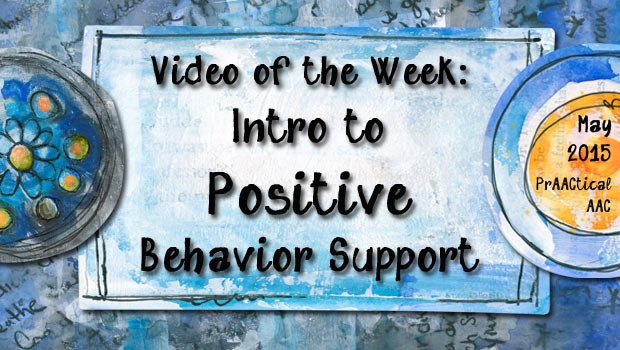
Most AAC practictioners understand and use elements of positive behavior support (PBS) in their work with people who have challenging behavior. This video, by the British Institute of Learning Disabilities (BILD), provides a helpful introduction to PBS, why it is used, and some of the key components. Even if you think you know PBS, this quick video is worth a watch. Not only is it a terrific resource to share with families and teams, but you may very well pick up a few things along the way.
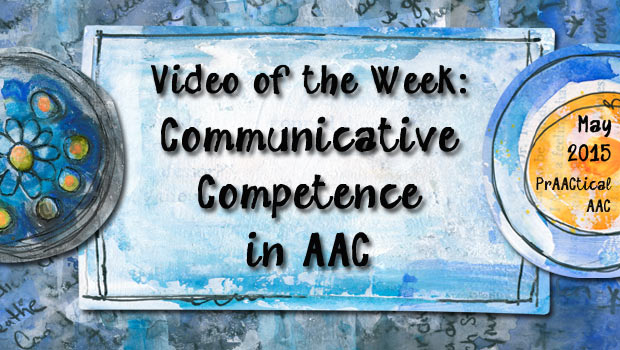
Today, we return to Institute on Disability at the University of New Hampshire to view another video from their AAC Initiative. In this presentation, Michael McSheehan reviews the domains of communicative competence in AAC and discusses issues and research supports for each area.
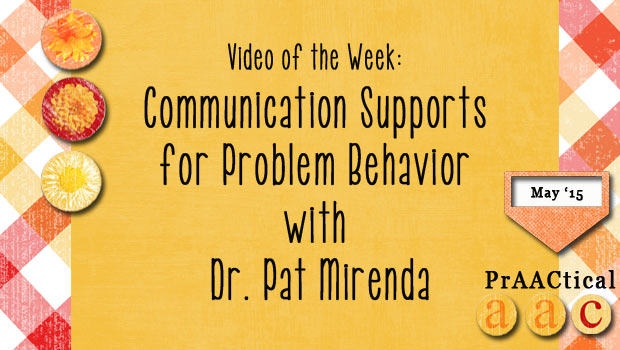
Last month, it was such a great honor to host Dr. Pat Mirenda at the UM-NSU Center for Autism and Related Disabilities (CARD). As some of you know, she was the presenter at our annual Issues in Autism Conference, and also was kind enough to record a shorter version of the presentation for the CARD eLearning site, CARD VINE. You can view that presentation below, and get the handout for it here.
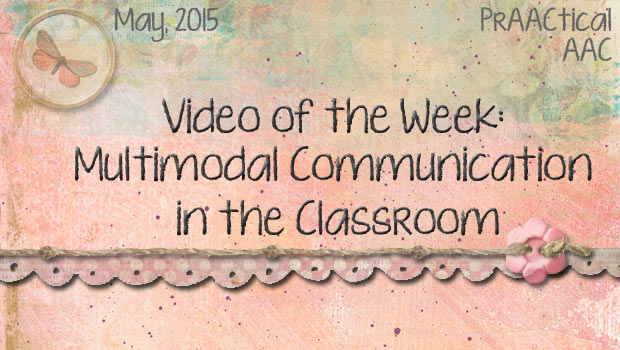
All around the world, students with AAC needs are increasingly afforded the tools and supports that they need to build effective communication skills. Today, we travel to England to peek into a classroom at the Milestone School in Gloucestershire. One thing that I just love about this video is that the adults honor and model multiple modes of communication. AAC devices are wonderful, but we can’t get so focused on them that we forget the important role that gestures, vocalizations and manual signs can play. Take a look. Direct Link to Video: https://www.youtube.com/watch?v=HygplCyZtoA
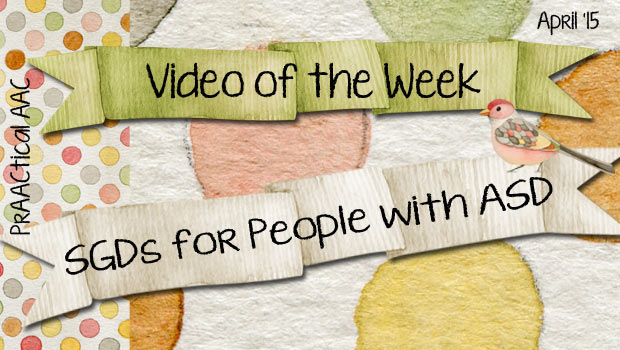
To wrap up Autism Awareness and Acceptance Month, we turn to the Autism Internet Modules, created by the National Professional Development Center on Autism Spectrum Disorders. Ellen Franzone introduces us to a comprehensive look at SGDs and their application with people who have ASD. You may have to register to access the site, but the information is worth the extra effort. Also, don’t miss the downloadable resources, such as this SGD Implementation Checklist. Direct Link: http://www.autisminternetmodules.org/mod_intro.php?mod_id=35 Franzone, E., & Collet-Klingenberg, L. (2010). Speech generating devices for children and youth with autism spectrum disorders. Madison: The University of Wisconsin, The National Professional Development Center on Autism Spectrum Disorders, Waisman Center.